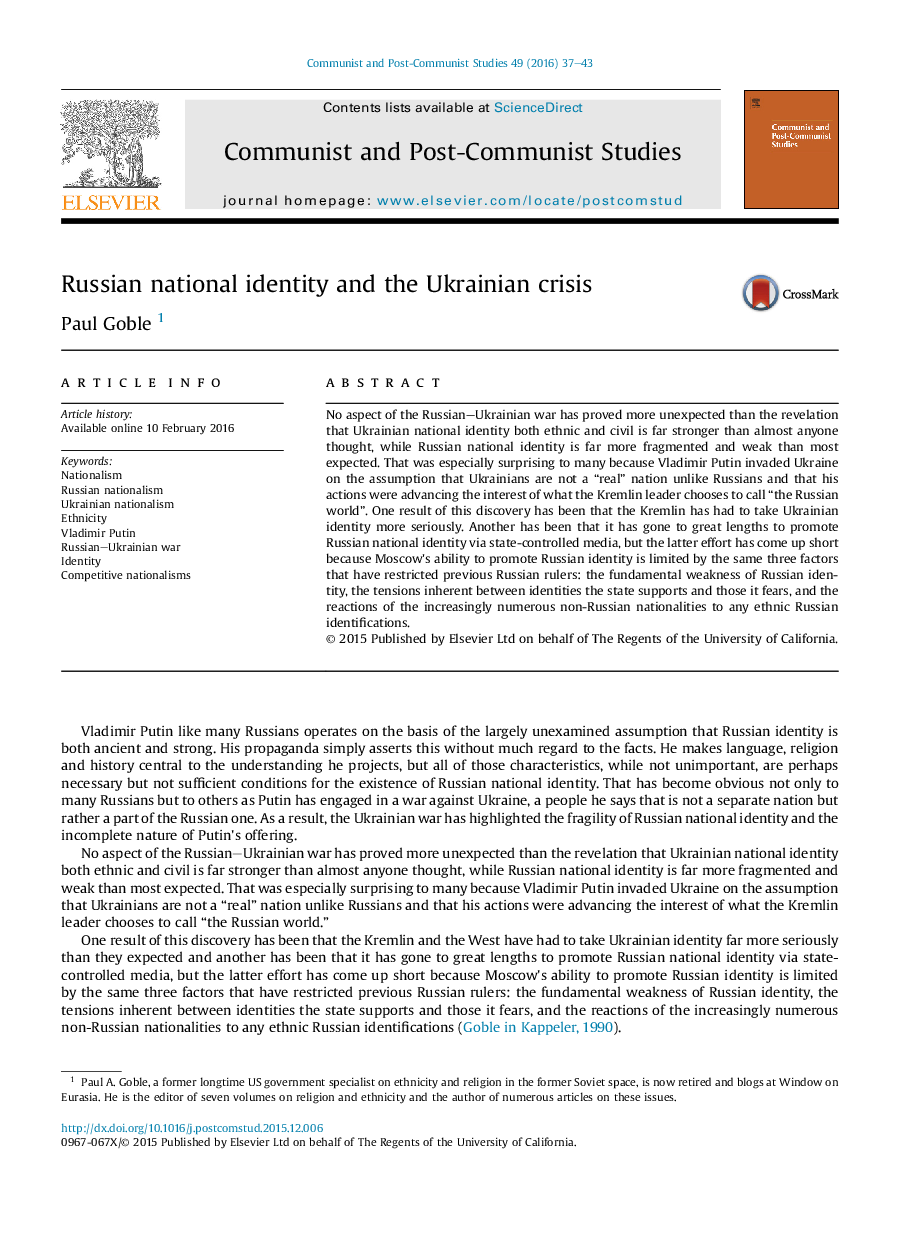| Article ID | Journal | Published Year | Pages | File Type |
|---|---|---|---|---|
| 1046346 | Communist and Post-Communist Studies | 2016 | 7 Pages |
No aspect of the Russian–Ukrainian war has proved more unexpected than the revelation that Ukrainian national identity both ethnic and civil is far stronger than almost anyone thought, while Russian national identity is far more fragmented and weak than most expected. That was especially surprising to many because Vladimir Putin invaded Ukraine on the assumption that Ukrainians are not a “real” nation unlike Russians and that his actions were advancing the interest of what the Kremlin leader chooses to call “the Russian world”. One result of this discovery has been that the Kremlin has had to take Ukrainian identity more seriously. Another has been that it has gone to great lengths to promote Russian national identity via state-controlled media, but the latter effort has come up short because Moscow's ability to promote Russian identity is limited by the same three factors that have restricted previous Russian rulers: the fundamental weakness of Russian identity, the tensions inherent between identities the state supports and those it fears, and the reactions of the increasingly numerous non-Russian nationalities to any ethnic Russian identifications.
